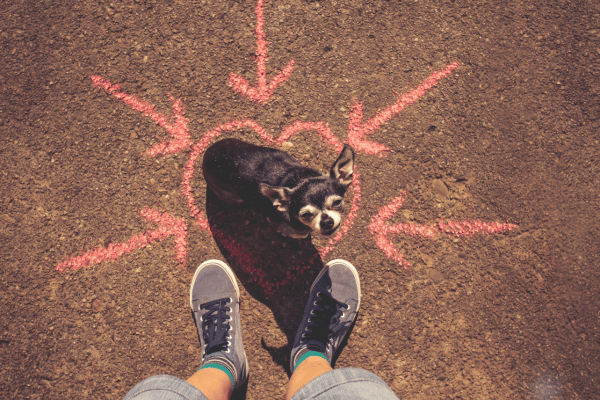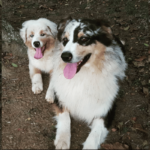Discover essential care tips for Chihuahuas and Pomeranians, breeds known for their vibrant personalities and unique needs, in our expert guide.
Personality Traits of Chihuahuas and Pomeranians

Chihuahuas and Pomeranians, though small in size, boast immense personalities. These breeds are known for their loyalty and spirited nature. Chihuahuas, often alert and assertive, can be fiercely protective of their owners. Pomeranians, on the other hand, are playful and outgoing, thriving on attention. Both breeds require socialization from a young age to ensure they develop into well-rounded adults. Their endearing qualities make them beloved companions in many households.
Caring for these small breeds involves specific considerations. Chihuahuas and Pomeranians have delicate structures, necessitating gentle handling and protection from harsh environments. Their dietary needs are unique, requiring high-quality food that caters to their energy levels and size. Regular veterinary check-ups are crucial to monitor their health, especially for breed-specific issues like dental problems in Chihuahuas and the potential for heart issues in Pomeranians. Proper care ensures these dogs lead healthy, happy lives.
Grooming is a vital aspect of Chihuahuas and Pomeranians care. Chihuahuas benefit from regular brushing, despite their short coat, to keep their skin healthy. Pomeranians, known for their luxurious fur, require more frequent grooming to prevent matting and maintain coat health. Both breeds need regular nail trimming and dental care. Establishing a grooming routine early on helps these dogs become comfortable with the process, making it a stress-free experience for both pet and owner.
Essential Health Tips for Small Dog Breeds
Chihuahuas and Pomeranians, while small, require dedicated care. Their size makes them vulnerable to physical injuries, so it’s crucial to create a safe environment. These breeds benefit from short, regular walks and indoor play to maintain their health without overexertion. Their energetic nature means they thrive on mental stimulation, so interactive toys and training sessions are beneficial. Remember, despite their size, these dogs have big hearts and need ample love and attention.
Healthwise, Chihuahuas and Pomeranians have distinct needs. Chihuahuas are prone to dental issues, making regular dental care essential. Pomeranians, with their thick coats, are susceptible to overheating and require grooming to prevent matting and maintain temperature regulation. Both breeds can suffer from heart problems, so regular veterinary check-ups are vital. A balanced diet, tailored to their small breed size, ensures they receive the necessary nutrients for a healthy life.
When it comes to Chihuahuas and Pomeranians care, socialization plays a key role. These breeds can be wary of strangers and other animals, so early and consistent socialization is crucial. Introduce them to various environments, people, and other pets in a controlled manner. This exposure helps them become well-adjusted, reducing anxiety and potential aggression. Remember, positive reinforcement during these experiences fosters confidence and a well-behaved demeanor in your beloved pet.
Training and Behavior of Tiny Canine Companions
Training Chihuahuas and Pomeranians, while challenging, is rewarding. These intelligent breeds respond well to positive reinforcement techniques. Consistency is key; regular training sessions help reinforce desired behaviors. Chihuahuas can be stubborn, requiring patience and gentle guidance. Pomeranians, eager to please, learn quickly but can become dominant without proper leadership. Socialization is crucial for both breeds to prevent small dog syndrome, where they become overly territorial and yappy.
Behaviorally, Chihuahuas and Pomeranians are quite distinct. Chihuahuas are known for their loyalty and can be protective of their owners, sometimes to the point of aggression if not properly trained. Pomeranians, with their outgoing nature, are generally friendly but can be prone to anxiety if left alone for extended periods. Both breeds benefit from early exposure to different people and environments, helping them become well-adjusted and sociable pets.
In terms of Chihuahuas and Pomeranians care, understanding their behavior is crucial. Chihuahuas may exhibit a ‘big dog’ attitude, often unaware of their small size, which can lead to confrontations with larger dogs. Pomeranians, while friendly, can be overly confident, making supervision important during interactions with other pets. Recognizing and respecting their individual personalities helps in providing a nurturing environment where they can thrive and exhibit their best qualities.
Creating a Loving Home for Small Breeds
Creating a nurturing environment for Chihuahuas and Pomeranians starts with understanding their needs. These breeds crave companionship and do well in homes where they can receive plenty of attention. Small spaces are suitable for them, but they still need their own designated area. Providing a comfortable bed, toys, and a safe space to retreat to is essential. Remember, despite their size, these dogs have big emotional needs and thrive on love and security.
Safety is paramount for these small breeds. Their diminutive stature makes them vulnerable to injuries from rough handling or larger animals. It’s important to supervise interactions with children and other pets. Chihuahuas and Pomeranians are also sensitive to extreme temperatures, so providing a climate-controlled environment is crucial. Additionally, keeping them on a leash during walks prevents them from getting into dangerous situations, as their curious nature can sometimes lead them astray.
In terms of Chihuahuas and Pomeranians care, regular health check-ups are essential. These breeds can have breed-specific health issues that require attention. Regular visits to a veterinarian, who understands their unique needs, help in early detection and management of potential health problems. A balanced diet, tailored to their size and energy levels, along with regular exercise, ensures they maintain a healthy weight and stay active and happy.
Balancing Diet and Exercise for Small Dogs

Diet and exercise are crucial for Chihuahuas and Pomeranians. These small breeds require a balanced diet that meets their high energy levels. Portion control is key to prevent obesity, a common issue in small dogs. High-quality dog food, rich in nutrients, supports their overall health. Exercise, while important, should be moderate. Short walks and play sessions suit their energy levels without overexerting them, keeping these petite companions healthy and vibrant.
Chihuahuas and Pomeranians have different exercise needs. Chihuahuas enjoy brisk walks and interactive play, which also helps in mental stimulation. Pomeranians, with their playful nature, love games that involve running and fetching. However, it’s important to monitor them during exercise to avoid exhaustion. Indoor activities like hide-and-seek or puzzle toys are excellent for days with harsh weather, ensuring they remain active and engaged while staying safe and comfortable indoors.
When considering Chihuahuas and Pomeranians care, remember that mental stimulation is as important as physical exercise. These intelligent breeds enjoy learning new tricks and solving puzzles, which keeps their minds sharp. Regular training sessions, using positive reinforcement, not only strengthen their skills but also deepen the bond between pet and owner. A well-balanced routine of physical and mental activities ensures these small dogs are not only physically fit but also happy and content.
Health Concerns Specific to Small Dog Breeds
Chihuahuas and Pomeranians, like all breeds, have specific health concerns. Chihuahuas are prone to dental issues due to their small mouths, making regular dental care essential. They can also suffer from heart problems and patellar luxation. Pomeranians, with their dense coats, are susceptible to skin issues and overheating. They may also face similar joint problems and are prone to tracheal collapse. Awareness and proactive care are key in managing these breed-specific health challenges.
Regular veterinary check-ups are vital for Chihuahuas and Pomeranians. These visits allow for early detection and treatment of any health issues. Vaccinations, parasite control, and routine health screenings are part of their health regimen. Owners should be vigilant about any changes in behavior or appearance, as these can be indicators of health problems. A close relationship with a trusted veterinarian ensures these small breeds receive the best possible care throughout their lives.
In terms of Chihuahuas and Pomeranians care, preventive measures play a significant role. A balanced diet, regular exercise, and mental stimulation contribute to their overall well-being. Avoiding obesity by monitoring their food intake and providing appropriate exercise helps prevent joint and heart issues. Regular grooming, dental care, and keeping up with veterinary appointments are essential in maintaining their health. Proactive and attentive care ensures these charming breeds live long, happy lives.
Understanding and Managing Small Breed Temperaments
Understanding the temperaments of Chihuahuas and Pomeranians is crucial for effective care. Chihuahuas are known for their bold and confident nature, often unaware of their small size. This can lead to a ‘Napoleon complex,’ where they exhibit overly assertive behaviors. Pomeranians, while generally friendly and outgoing, can develop separation anxiety if left alone for long periods. Providing consistent companionship and setting boundaries helps manage these temperamental traits, ensuring well-adjusted and happy pets.
Both Chihuahuas and Pomeranians respond well to positive reinforcement training. This approach not only teaches them desired behaviors but also helps in managing any negative traits. Early socialization is key; exposing them to different people, pets, and environments helps them become more adaptable and less fearful. Regular, gentle training sessions reinforce good behavior and build confidence, especially in Chihuahuas, who may be more reserved or protective.
In terms of Chihuahuas and Pomeranians care, addressing their emotional needs is as important as their physical health. These breeds crave attention and affection, thriving in environments where they feel loved and secure. Ensuring they have a consistent routine, including playtime, rest, and training, helps in maintaining their emotional well-being. Recognizing and respecting their unique personalities allows for a deeper bond and a more harmonious relationship between these small dogs and their owners.
Chihuahuas and Pomeranians Care: Grooming Essentials
Grooming is a vital part of Chihuahuas and Pomeranians care. Chihuahuas require less grooming due to their short coat but still need regular brushing to remove loose hair and maintain skin health. Pomeranians, with their thick, fluffy coats, need more frequent grooming to prevent matting and tangling. Regular baths, while necessary, should be done with care to avoid drying out their skin. Using the right grooming tools and techniques is essential for their coat health.
Nail care is also important for these small breeds. Long nails can cause discomfort and lead to problems with walking. Regular trimming helps prevent this. Dental care is another crucial aspect; both breeds are prone to dental issues, so regular brushing and dental check-ups are necessary. Ear cleaning should be done carefully to prevent infections. Grooming sessions also provide an opportunity to check for any skin issues or abnormalities.
Incorporating grooming into the routine of Chihuahuas and Pomeranians care not only keeps them looking their best but also promotes overall health. It’s an opportunity for owners to bond with their pets and check for any signs of health issues. Grooming should be a positive experience, so it’s important to introduce it slowly and gently, especially for puppies. Regular, gentle grooming ensures these breeds stay comfortable, healthy, and happy.
Enhancing Quality of Life for Small Breeds
Enhancing the quality of life for Chihuahuas and Pomeranians involves more than just meeting their basic needs. It’s about creating a loving, stimulating environment. These breeds enjoy being part of family activities and thrive on affection and attention. Providing a variety of toys and playtime activities keeps them mentally stimulated. Ensuring they have a comfortable, safe space in the home where they can retreat and relax is also important for their well-being.
Social interaction plays a significant role in their happiness. Regular playdates with other small dogs can be beneficial, but always under supervision to ensure safety. Training classes not only help with obedience but also provide socialization opportunities. For Chihuahuas and Pomeranians, consistent, gentle handling and positive interactions with people and other animals help in developing their social skills, making them well-adjusted pets.
In terms of Chihuahuas and Pomeranians care, remember that these breeds are sensitive to their owners’ emotions. They respond well to a calm, positive household environment. Regular routines for feeding, exercise, and sleep help them feel secure. Celebrating their unique personalities and catering to their specific needs ensures they lead fulfilling lives. As small as they are, these breeds have a lot of love to give and thrive in environments where that love is reciprocated.
Long-Term Commitment to Small Breed Wellness
Caring for Chihuahuas and Pomeranians is a long-term commitment that requires dedication and understanding of their specific needs. These breeds can live for many years, often into their teens, so it’s important to consider their care as a lifelong journey. This includes regular health check-ups, maintaining a consistent grooming routine, and adapting their care as they age. As they grow older, their dietary and exercise needs may change, requiring adjustments to their routine.
As these breeds age, they may develop age-related issues such as decreased mobility or vision and hearing loss. It’s important to be attentive to these changes and adapt their living environment accordingly. Providing ramps or steps to help them access furniture, ensuring their sleeping area is comfortable and accessible, and being patient with their slower pace are all ways to support them in their senior years.
In terms of Chihuahuas and Pomeranians care, emotional support becomes increasingly important as they age. They may require more comfort and reassurance as they navigate the challenges of aging. Continuing to provide them with love, attention, and mental stimulation helps maintain their quality of life. Regular veterinary visits are crucial to manage any health issues and to ensure they are as comfortable and happy as possible in their golden years.
Celebrating the Journey: Chihuahuas and Pomeranians Care
In conclusion, caring for Chihuahuas and Pomeranians is a rewarding experience that enriches lives. These breeds, with their distinct personalities and specific needs, require dedicated attention and love. From their playful puppy days to their more serene senior years, each phase of their life offers unique joys and challenges. Owners who embrace these aspects find a deep, fulfilling bond with their pets, making every effort in their care truly worthwhile.
Remember, the key to successful Chihuahuas and Pomeranians care lies in understanding and catering to their physical, emotional, and behavioral needs. Regular health check-ups, a balanced diet, consistent grooming, and ample exercise are fundamental. Equally important is providing a loving environment where they feel secure and valued. These small breeds have big hearts, and when cared for properly, they offer immense love and companionship in return.
As we reflect on Chihuahuas and Pomeranians care, let’s celebrate the joy these small breeds bring into our lives. If you’re considering adding one of these delightful dogs to your family, or already have one, cherish every moment. For more insights and tips on pet care, visit American Kennel Club. Share your experiences and thoughts in the comments, or seek advice from fellow small breed enthusiasts.
II. Frequently Asked Questions About Dog and Cat Breeds
- Are mixed breed cats better companions?Mixed breed cats can be just as affectionate and loyal as purebreds, often with fewer health issues.
- Are mixed breed dogs better companions?Mixed breed dogs are known for their unique personalities and can be excellent companions, often with fewer genetic health problems.
- Is it true that some cat breeds don't like their owner?While some cat breeds may be more independent, it's not accurate to say they don't like their owners; they may show affection differently.
- How can I have a pedigree for a cat or dog?To obtain a pedigree, your cat or dog must be registered with a recognized breed organization, and both parents must also be registered purebreds.
- What is the best institution to register a breed cat or dog?In the United States, the American Kennel Club (AKC) for dogs and The International Cat Association (TICA) for cats are reputable organizations.
- Should purebred dogs and cats be microchipped?Yes, microchipping is recommended for all pets, including purebreds, as it can help reunite lost pets with their owners.
- What is the most expensive dog breed in the world and which is the cheapest?The Tibetan Mastiff is among the most expensive, while mixed-breed dogs often have lower adoption fees, making them less costly.
- What is the most expensive cat breed in the world and which is the cheapest?The Ashera cat can be one of the most expensive, while domestic mixed-breed cats are generally less costly to adopt.
- What breeds of dogs and cats are native to the United States?The American Pit Bull Terrier and the Maine Coon cat are examples of dog and cat breeds native to the United States.
- Are there breeds of dogs and cats that cannot reproduce naturally?Some breeds, due to physical characteristics or health issues, may require veterinary assistance to reproduce, such as English Bulldogs.

Join Dan Morgan at dwfocus.com, your hub for ‘4 paws and owners’ wisdom! Explore a world where pet care meets expert insights, crafted by Dan, a seasoned vet with a heart for animals. Engage with stories, tips, and advice that every pet owner needs. From playful pups to graceful cats, Dan Morgan guides you through the joys and challenges of pet parenting. Embrace your love for pets with Dan’s expert guidance on dwfocus.com. #4PawsAndOwners #DanMorganPetExpert #dwfocus






